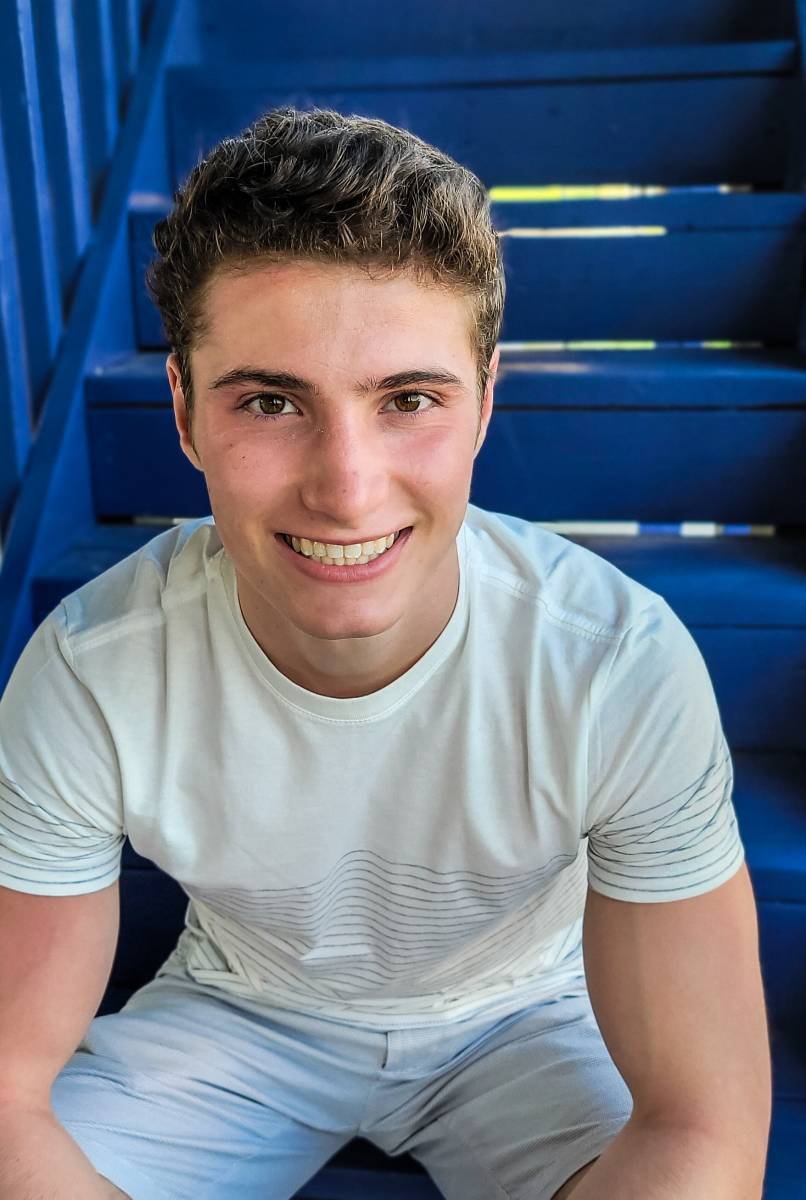We donate a percentage of our profits to the Tourette Syndrome Association of America.
Our son, Sam was diagnosed with Tourette Syndrome when he was almost six years old, after watching him blink his eyes, shrug his shoulders and hop up and down. When he first started having tics at about two and half/three years old we thought that they were related to allergies, and we thought they were cute. Fast forward a few years and he was diagnosed with Tourette Syndrome. About nine years later our youngest child, Annie, was also diagnosed with Tourette Syndrome after watching her tic off and on for a few years. She was seven when she was diagnosed.




Over the years Sam had mild tics to the outside world, but tics aren’t always seen by the average person. He worked hard in the classroom to keep his tics hidden and found that sometimes the OCD that came with the Tourette Syndrome helped him on the sports field – where he learned to use both sides of his body evenly much faster than most kids his age.
When he was younger he didn’t experience coprolalia (the involuntary and repetitive use of obscene language – only experienced by less than 10% of people with Tourette Syndrome) something people always ask him if he had when he was younger.

When Annie came we really learned that Tourette Syndrome has all kinds of flavors. Although, like Sam, Annie’s tics are still fairly unnoticed by the outside world, if you don’t know what tics are, but her TS presentation is still a little different. We have two kids with Tourette Syndrome in our family and although sometimes they “share” tics with each other because tics are suggestable to people with Tourette Syndrome, they still have their own flavor of Tourette Syndrome.

By middle school most of Sam’s obvious outward tics were minimal. Either people didn’t notice them, they were what we call “hidden tics” or he asked masked them. Masking tics is exchausting. It takes a big toll on people with Tourette Syndrome. He continued to deal with the OCD component of Tourette, but not the hand washing and overzealous cleaning kind of OCD that people like to think all people with OCD struggle with. In high school the tics and OCD increased and after a very hard year with it, he decided to become a Tourette Syndrome Ambassador. Although his outward tics are might look minimal to people looking, it is still hard. He masks his tics every day, although he tries not to ask as much as he used to. He still has hidden tics. Both the masked tics and the hidden tics exhaust him every day. Most people don’t understand how life can be both fulfilling and very hard with Tourette Syndrome.
He teaches about Tourette Syndrome in an effort to increase awareness and to let people know that even though there is a wide range of symptoms for people with Tourette Syndrome, they’re still just every day normal people, like him. He wants younger kids with Tourette Syndrome to know there is hope and that they can have people to look up to with Tourette. He loves playing basketball, hanging out with his siblings and friends, reading books, and personal fitness. He has many hopes and dreams for his future. He is also a Tourette Syndrome Camp USA counselor.
Annie is still coming to know what Tourette Syndrome is and will be for her. Her tics wax and wane as tics do, but for now we find that when she’s spending more time with people, because she’s an extroverted people lover, her tics are lower. Her doctor thinks she might be subconciously surpressing tics when she’s around people. Most people still don’t know she has Tourette Syndrome, unless she point is out to them, they happen to see her tic and ask about it, or they understand Tourette Syndrome and can pick up on the milder nuances of Tourette Syndrome in spite of the masking that mostly hides Tourette Syndrome.
Unfortunately kids with Tourette Syndrome learn to mask before they understand what it means to mask tics. They subconsciously they learn tics aren’t socially acceptable before they have words to express what tics are and feel like.
I love watching Annie and Sam together when they do what we affectionately call tic flirting -teasing back and forth with their tics.
It’s motivating. It’s real. It’s beautiful. It’s hard, and it’s life.

